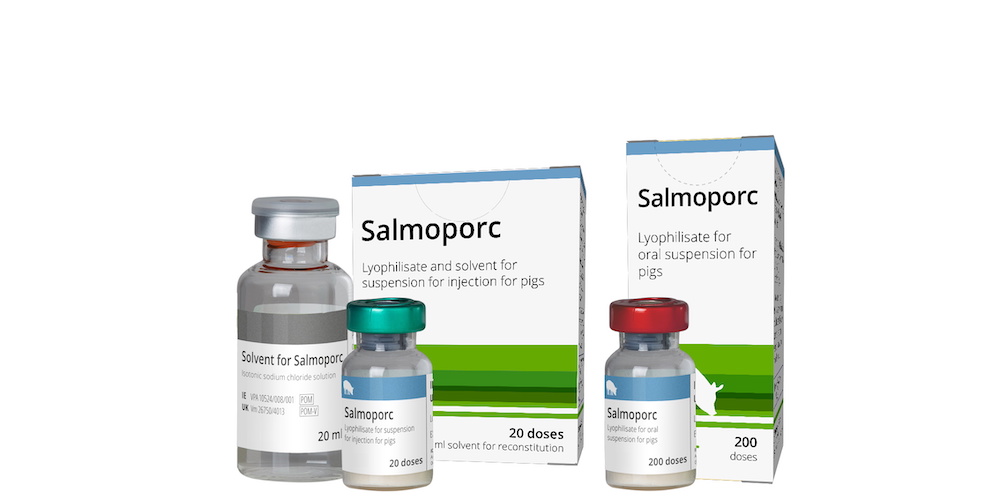New pig vaccine to tackle rising salmonella problem
26th November 2019
Pig producers now have a new defence against salmonella in their armoury, with the launch of Salmoporc, the only licensed vaccine for the disease in the UK and Ireland.
Pig producers now have a new defence against salmonella in their armoury, with the launch of Salmoporc, the only licensed vaccine for the disease in the UK and Ireland.
Salmoporc is a live attenuated vaccine from Ceva, offering protection against Salmonella typhimurium and its monophasic variants, which can cause serious health issues in pigs and humans.
Salmonella levels in UK and Irish herds are the highest in the EU, with a prevalence of 19.5 per cent and 17.5 per cent respectively. Ceva notes that it is particularly difficult to control in outdoor herds, as the bacteria can survive in soil for a year, or even longer in dried dung. It has even been detected in fields two years after the pigs vacated the area.
Ceva vet Dr Rike Schmelz said salmonella is a growing problem on pig farms and bacteria are transmitted through breeding pyramids, which eventually supply finishing pigs. Often, diarrhoea occurs after weaning and is treated with antibiotics.
“The monophasic variant of S. Typhimurium is already multi-drug resistant and vaccinating pigs can help farmers to substantially reduce their use of expensive antibiotics,” she said. “In addition, with the removal of zinc oxide at therapeutic levels from the feed in mid-2022, salmonella and other enteric diseases are likely to become more apparent.”

Salmoporc is administered orally to piglets and by subcutaneous injection in sows.
Vaccinating pigs against S. Typhimurium offers economic benefits through reduced mortality and improved daily liveweight gain (DLWG) among pigs, Ceva explains. The vaccine is administered orally to piglets and by subcutaneous injection in sows.
Independent trials at the University of Ghent, Belgium, found that vaccinated piglets from three herds gained 30-39g between three and 29 weeks – significantly more per day that unvaccinated controls.
Meanwhile, trials in Germany suggest that vaccinating sows and gilts at the top of the breeding pyramid, combined with a competent hygiene programme, can eliminate salmonella from the supply chain. Dr Schmelz said this could become increasingly important with integrated systems linked to branded supermarket products.

